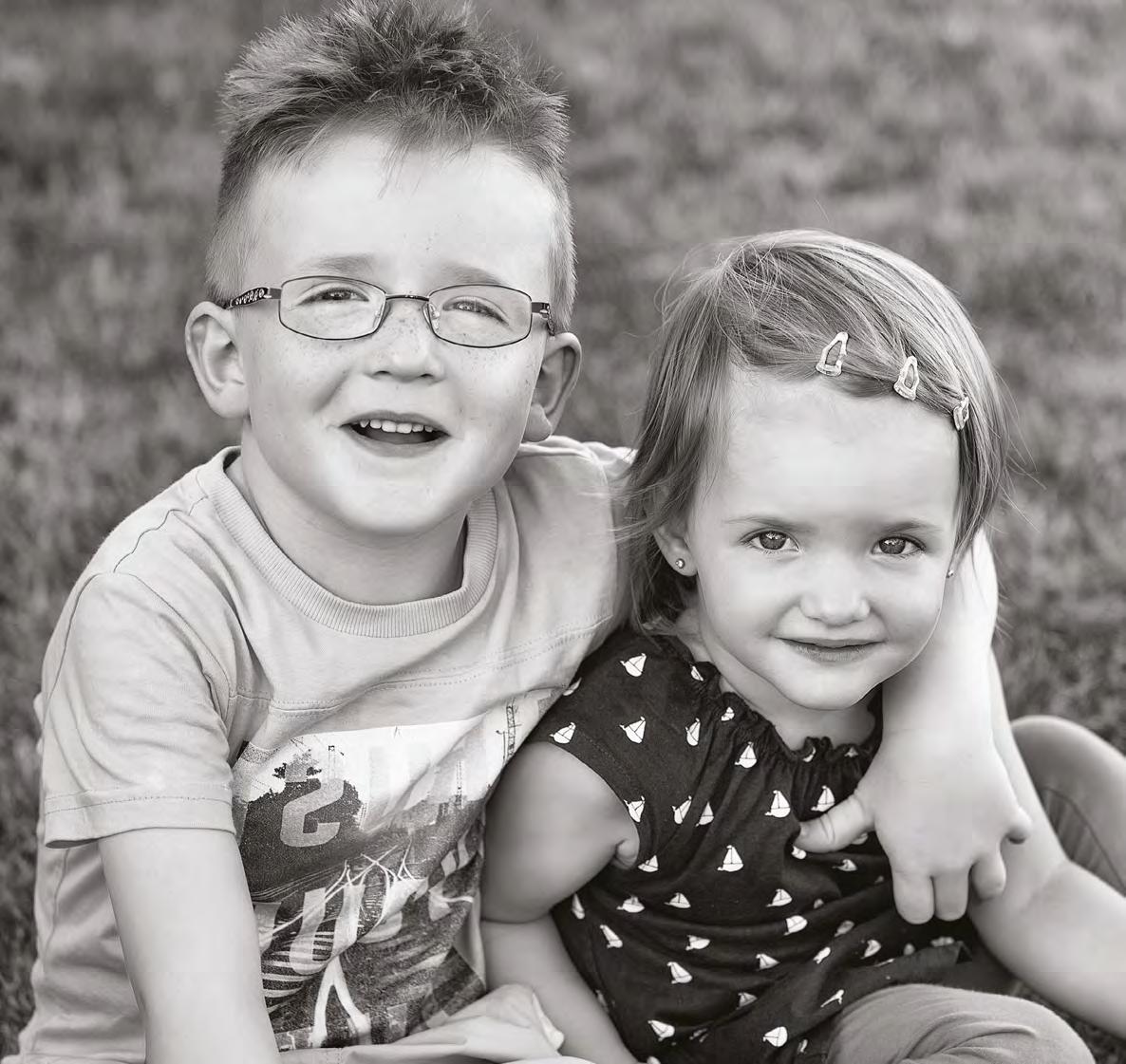

Turning insight into impact
“ I believe the Coram Institute for Children is uniquely able to bring together those who can make a difference in children’s lives today and set a new agenda for the children of tomorrow.”
Professor Sir Al Aynsley-Green
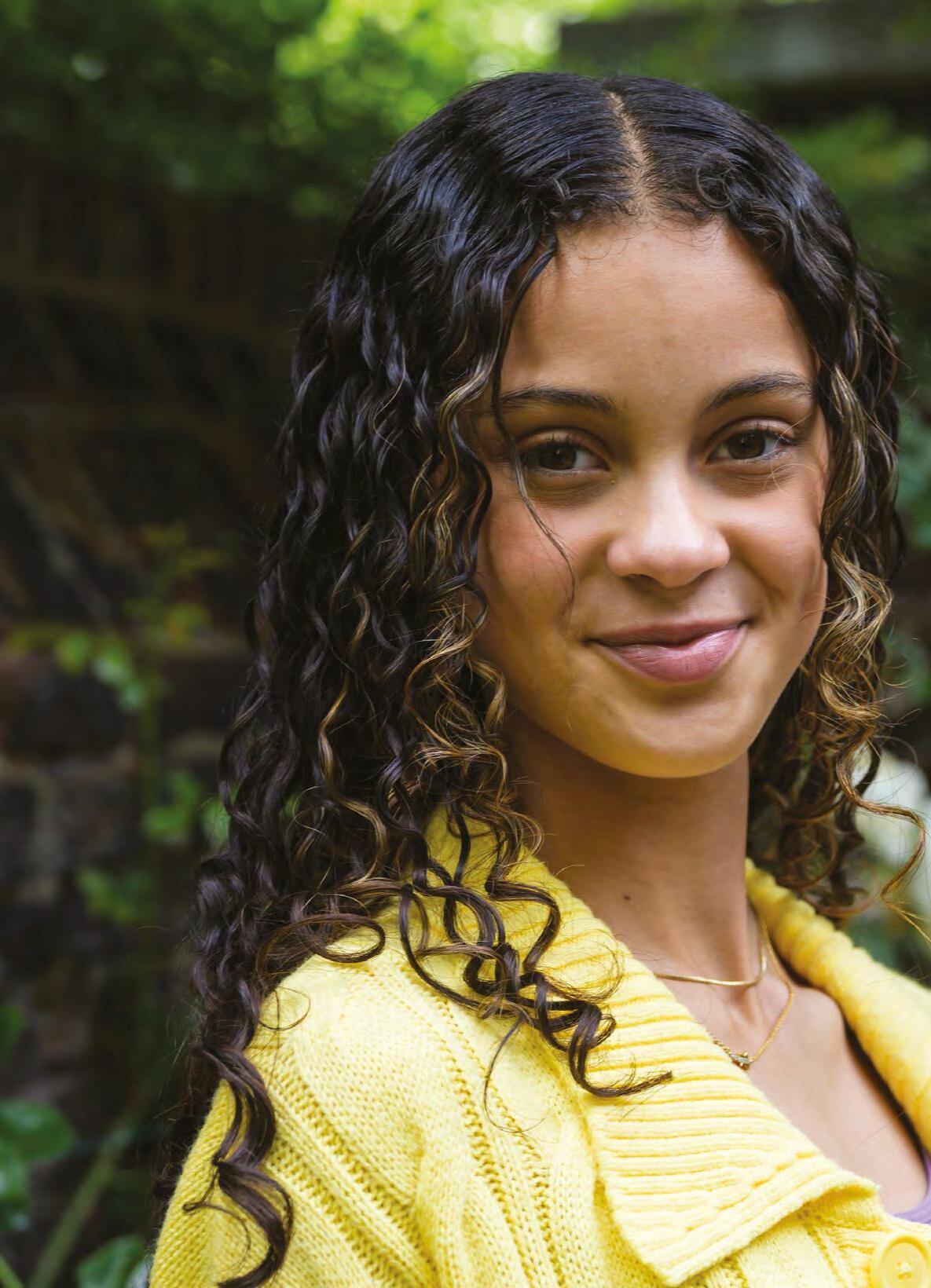
RESEARCH INSIGHT INTO IMPACT
Think and Do centre undertaking research, generating evidence-based policy and driving change in how programmes are run and the way services are designed and delivered.
FINDING NEW SOLUTIONS
An innovation hub working in partnership with local authorities and voluntary and private sector organisations to develop and share solutions.
VOICES IN ACTION
Enriching understanding through peer and participatory research, early career research pathways, and co-production of policy recommendations with children.
Better chances for children, now and forever
The challenges facing children are constantly changing, yet remarkably enduring.
Coram was established as the Foundling Hospital in 1739, when the causes of disease and the drivers of destitution were rife, with children facing compounded risk from birth. It was in the face of overwhelming need that Thomas Coram created the Foundling Hospital, and Coram remains the first and longest continuing children’s charity and in many ways the birthplace of our children’s social care system.
Today, we can all build on the cumulative advances in research from social science, psychology, and medicine, and be proud of our legal and social care framework, which is designed to protect children and advance their welfare and education. And yet, for all too many children, their chances in life still depend on where they live and who they live with, as well as their own individual needs.
Coram therefore continues every day to deliver services designed to champion children’s chances in life today and to tackle intergenerational cycles of loss and disadvantage. But there is so much more to be done if we are to change the odds for the post-pandemic, digital-first generation and build a society that cares for all.
It is to achieve this aim that we have developed our research capacity and capability and aspire to play our part as an independent research organisation in realising UK Research and Innovation’s vision for world-class ideas and impact. Built upon both data derived from our service delivery and youth insight, our UK and international research is designed to support evidence-based decision-making at national and local level, while we also work in partnership to improve outcomes in practice.
The Coram Institute for Children is the result of this journey –a “think and do” centre, putting children at the forefront of high quality, independent research, making change happen through policy-ready recommendations, practice innovation and public discourse.

Professor Sir Ivor Crewe DL FAcSS Coram President


Dr Carol Homden CBE CEO & Director of the Coram Institute


“ Vulnerability is the birthplace of innovation, creativity and change.”
Professor Brené Brown
Coram Institute vision
Coram’s vision for children is a society where every child has the best possible chance in life, regardless of their background or circumstances. It is to realise this mission that we are committed to the pursuit of world-class research with a focus on how it can be communicated and applied to achieve greatest benefit for the children and young people we serve.
The Coram Institute for Children brings together our established research activities which draw upon the data and experience in the delivery of multi-disciplinary services to inform evidence-based solutions to the challenges facing children. By providing policy-ready recommendations, practice development capacity and convening public discourse, we strive to make change happen for the next generation.
Aims and principles
The Coram Institute produces high quality independent research which embeds the voice of children and young people to improve policy and practice.
Core to this are our principles of being:
• Child-centred – from research design to dissemination.
• Rigorous – robust research methods for accuracy and reliability.
• Grounded in experience – we draw upon, value, and promote expertise through experience.
• Collaborative – projects are completed in partnership with those that commission the research and where appropriate those with relevant expertise.
• Impactful – research that translates into policy and systems change.
Objectives
The key objectives for the Coram Institute to support our approach of turning insight and evidence into impact are set out for the next five years:
a. Further develop the Coram Institute as a centre for research excellence, expanding our research capacity, capability and expertise including through innovation in mixed methods evaluation and the creation of a data repository to host our growing number of national data collections and longitudinal datasets.
b. Utilising and extending the voice of children and young people in research through participatory methods and co-production of research with children and young people expanding our Youth Insight programme and acting as an expert by experience research hub to train and support future leaders in research, practice and policy.
c. Build on our international insight, historical perspective, real-time data and experience of direct service delivery, and
strategic research partnerships to inform the UK research community and future research direction as an Independent Research Organisation.
d. Develop the Coram Institute for Children as a central place for research dissemination, discussion and debate as a national centre of evidence-based policy and practice, turning insight into impact.
Fulfilling these objectives will help us achieve the Institute’s aims of informing the research agenda in what matters to children and families and enabling children and young people to influence the direction of research and its relevance to their lives.
Areas of research
We are prioritising five areas where there is a need to develop the evidence base to address critical societal challenges and provide innovative solutions to improve the lives of children and young people.
1. Children and young people’s early intervention, support and childcare – Focusing on childcare and early education before formal schooling; early intervention and help for all children before involvement by statutory services.
2. Children and young people’s educational enrichment, oracy, creative learning and emotional wellbeing –Measures of wellbeing, socio-emotional education, and creative programmes.
3. Children and young people who are at risk of entering care or care experienced – Those who are adopted, in foster care, residential care and in kinship care, as well as care leavers addressing practice, policy and systems change now and through time.
4. Children and young people who are at risk of or experience exclusion – School exclusion, homelessness and marginalisation from parts of society due to poverty, youth violence and exploitation, race, and immigration status or nationality.
5. Children’s rights and access to justice – Child rights frameworks as well as criminal, civil, administrative justice, with a focus on immigration, child protection and youth justice systems.
The Institute will further develop a comprehensive programme of high-quality domestic and international research to grow the evidence base and expand existing knowledge in these areas.
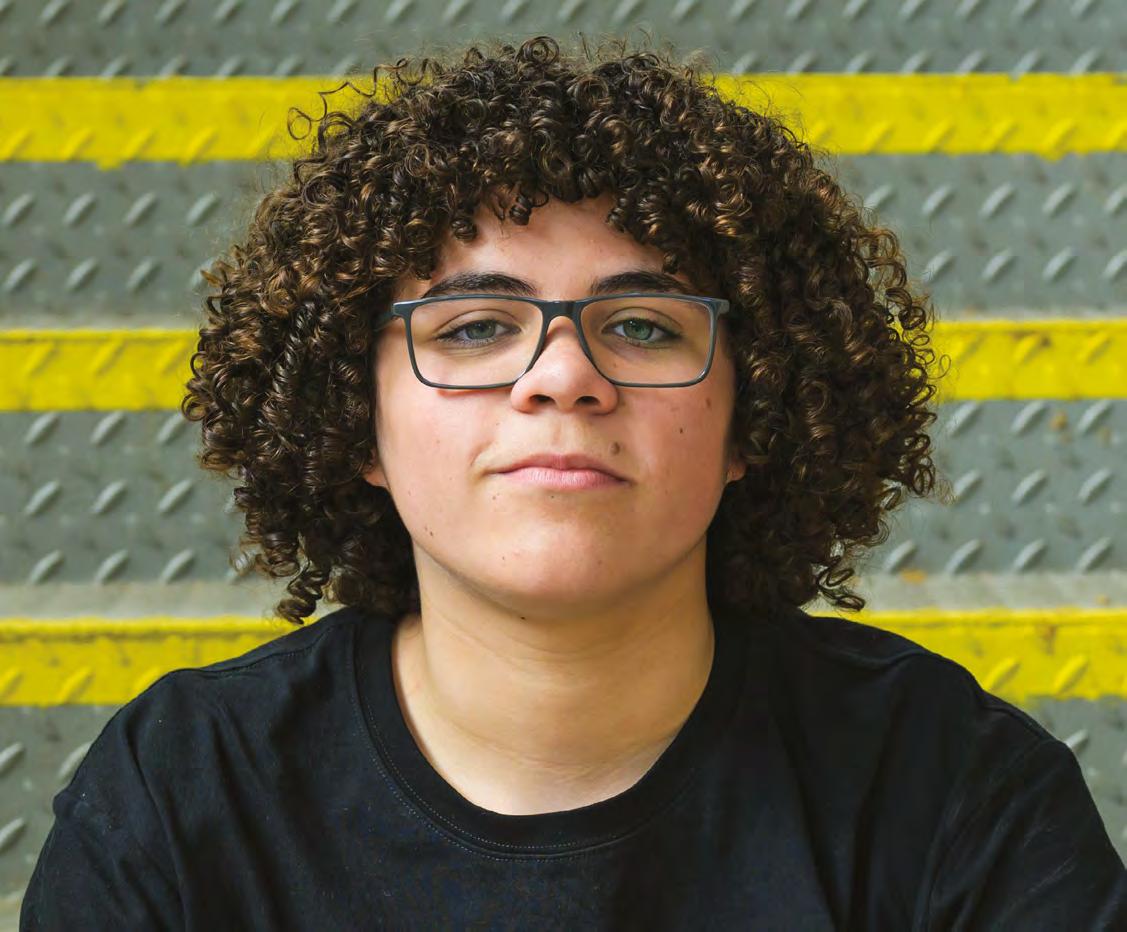
Board Members
Ade Adetesoye CBE (Chair), Chief Executive of the London Borough of Bromley and SOLACE lead for children and young people.
Professor Sir Ivor Crewe DL FAcSS, former Vice Chancellor the University of Essex, former Master of University College Oxford and former President of the Academy of Social Sciences.
Andrew Ireland, former Director of Children’s Services for Kent County Council.
Professor Jonathan Portes (Chair of the Research & Ethics Committee), Professor Economics and Public Policy at King’s College, London and former Chief Economist of the Cabinet Office.
Gita Singham-Willis, founding partner of Cadence Innova (now Transform).
Edward Timpson CBE KC, former Minister for Children and Families.
Dr Judith Trowell, Child and Adolescent Psychiatrist and former chair of Voice for the Child in Care.
Our research partners
To advance the Coram Institute, we have developed a number of substantive strategic partnerships with a growing group of academic institutions, developing new pathways to impact, including through cosupervised PhDs, joint events and research delivery.
Partnership with Newcastle University and its Centre of Research Excellence (NUCoRE) for Children and Youth is focussed on joint conferences and lectures, collaborative studies and studentships across arts, humanities, and social sciences including historical studies, and digital futures.
Partnership with University College London, and within it the Thomas Coram Research Unit, UCL Policy Lab and London Office is advancing joint forums on policy priorities, whilst work with City St George’s University is advancing data issues in the arenas of children’s lives.
The President of City St George’s, and Pro Vice Chancellors of both Newcastle University and UCL are part of the Academic Advisory Council chaired by Professor Sir Ivor Crewe and the partnerships support the building of capacity through a growing number of joint research applications, PhD studentships and public programmes as well as knowledge exchange, collaborative research, and practical impact for children and families with to enhance reach and impact.
We are proud to be knowledge-partner to the Churchill Fellowship in advancing practice learning through international fellowships and to work closely with UNICEF global HQ and regional offices.
Independent Research Centre
Coram has two established specialist research teams and a host of expert multi-disciplinary researchers who work on a wide range of research projects spanning the issues that affect children and young people.
UK Research, Impact and Evaluation
Coram Research, Impact and Evaluation has been working for over 15 years with government departments including the Department for Education and the Ministry of Housing, Communities and Local Government, What Works Centres (such as Foundations and the Youth Endowment Fund), local authorities, the NHS and other third sector organisations to deliver large evaluations of significant policies and programmes.
The team of 15 highly skilled researchers is led by Max Stanford and works alongside around 20 research associates, pro-bono economists and lived experience co-researchers to deliver mixed methods applied research and evaluation.
We are known for our expertise in blending robust research methodologies such as large-scale, multi-site experimental impact evaluations with participatory research with families which including in-depth qualitative research with peer researchers. The programme covers a wide range of research from small scale qualitative studies with marginalised and minoritised communities to complex analysis of large longitudinal datasets to comprehensive process, impact and economic evaluations of targeted interventions and government policies. All with the aim of producing high quality evidence to inform policy and practice to better the lives of children and young people in the UK. Recent published studies
The Door is Still Closed, a 10 year follow up study on the learning from practice on the issues facing 16-17 year olds who present to local authorities as homeless
Guidance on improving opportunities for physical activity for care-experienced children and young people produced for the Local Government Association
Literature review on the level of available evidence on the impact of arts projects for children and young people with experience of care
UK team

Max Stanford, BA PGiP, MPhil
Hannah Lawrence, BA, MSc
Emily Blackshaw, BSc, PhD
Katharine Stockland, MA, MPhil, PhD
Sam Shorto, BSc, MA, MSc, PhD, Narendra Bhalla, BSc, MSc
Richard Ollerearnshaw, BA, PGCE, MA
Mia Johnson Hall, BA, MRes (in progress)
Mariya Sethwala, BA, MSc
Greg King , BA
Elizabeth Raws, BA, MSc
Daniel Stern, BEng, MSc, PhD
Amaka Udeagbaja, BA
Eren Ince, MA
Coram International
Coram International is led by Professor Dame Carolyn Hamilton and has over 25 years’ experience of research across the globe, specialising in child protection, child justice and education. The primary purpose of Coram International’s research is to inform and influence policy, legislation, programmes and child rights participation. It has completed research in 94 countries.
Coram International has established expertise in designing and delivering complex, mixed-methods research. Our work spans research synthesis, situation analyses; evaluations, and gap and trend analyses, alongside barrier and bottleneck studies. We prioritise methodological rigour, comparative insights, and context-sensitive analysis to produce recommendations that are not only evidence-based but also feasible, actionable, and tailored to diverse policy environments.
All of Coram International’s work is underpinned by a rigorous human rights framework, rooted in the UN Convention on the Rights of the Child and other international standards. This provides a principled baseline for inquiry, ensuring that research is both methodologically robust and ethically grounded. Central to this approach is the recognition of the rights of children and affected communities to be heard and systematic incorporation of their perspectives through participatory research and consultation processes.
Research is conducted in close collaboration with local, national, and international organisations, governments, and civil society partners. These partnerships enhance contextual understanding, strengthen the validity of findings, and maximise the uptake of evidence to advance the realisation of children’s rights globally.
In addition to generating new evidence, Coram International contributes to the development of the child rights’ field by providing training, capacity building, and advisory support. This dual emphasis on knowledge production and knowledge transfer ensures that evidence informs practice and fosters sustainable improvements in policy and programming.
International team

Professor Dame
Carolyn Hamilton, LLB, Barrister-at-Law, DBE
Awaz Raoof, LLB, PGDip, LLM
Farah Elhouni, LLB, LLM, MA (in progress)
Freya Allery, MEng, MA PhD (in progress)
Jen Joy, MA, MSc
Kara Apland, BA, MSc, DPhil (in progress)
Kirsten Anderson, LLB, BA, LLM
Madison Charlton, BA, MSc, GMBPsS, Mathilde Guntzberger, BA, MA, PGDip
Rebecca Sykes, BA, MA
Sihana Bina, BS, MA
Dr Amelia Smith, PhD
Max Stanford
Managing Director of Research – Ethics lead
Dr Hannah Lawrence, Senior Researcher –Participatory methods
Catherine, XX

Young people’s voice in research
At the heart of our research strategy is participatory research with children using a variety of methods to ensure the inclusion of the child’s voice. We will also develop opportunities for youth peer researchers and early career researchers to develop skills and conduct relevant, impactful research.
Peer researchers in a large-scale efficacy trial
Since April 2024, the Coram Institute team has run a large-scale randomised controlled trial (RCT) for the Youth Endowment Fund of a 12-month restorative mentoring programme for young people aged 11 to 17 at risk of offending and involvement in youth violence.
Central to the trial is a participatory approach to ground the research in lived experience of the youth justice system. Our approach places young people, who have faced similar challenges to those faced by participants, at the heart of an efficacy trial through use of an embedded peer researcher programme. Our team of six paid peer researchers, aged 18 to 25, is the first point of contact for participants referred to the trial. Peer researchers receive a comprehensive training programme and ongoing supervision from the Coram Institute for Children.
Each peer researcher plays a pivotal role by explaining the RCT, gathering informed consent and supporting the young person to complete a set of measures about sensitive topics. We believe including peer researchers is a unique and innovative way to run a RCT in social research settings, enabling meaningful participation and producing credible findings. As one young person told us:
“I answered all the questions honestly, like when they said ‘have you carried a knife in the past 6 months?’, like, I would either say ‘I have’ or I would say ‘yeah’ … it’s easy to admit to things to them [peer researchers].”
Youth Insight research
Postgraduate youth insight researchers help to shape the research programme by initiating and delivering their own insight project which is showcased with an annual Future of Youth forum alongside established academics and practitioners.
Anthony Lynch and Zoë Lambert , co-founders of the In-Between Lines initiative, researched the area of complex identity, creating a new practice framework which is now being developed into a training programme for social workers to support the life story exploration and identity of young people who are adopted or living in alternative or reformed families.
Milly Jonas has pursued the generational issue of Digital Futures: from Risk to Response, exploring the balance between the digital realities of children and young people and the responses of older generations to regulation and the need for enhanced critical thinking skills as well as digital literacy.
Abdullahi Yussuf and Amina Meshnuni showcased their work on the experiences and needs of young people seeking asylum alongside the work of Professor Elaine Chase of TCRU, University College London as part of our annual partnership event to share recent research and the relevance to policy and practice.
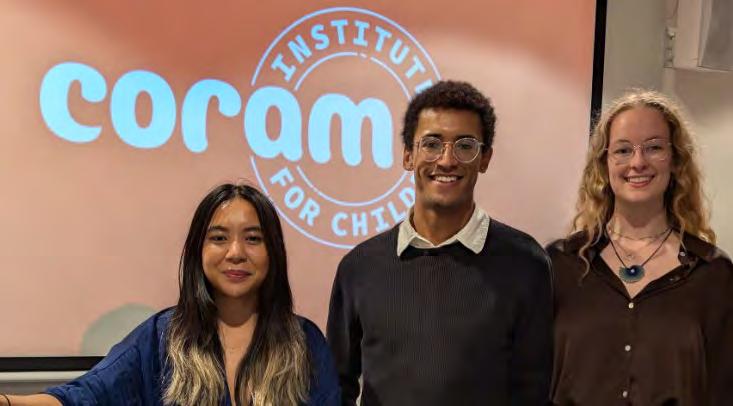
How we turn insight into impact
The Coram Institute generates independent research which, alongside young people’s insight and recommendations, our practice hubs and public programme, aims to inform and shape UK policy and practice and enhance public understanding of children’s issues.
Randomised Controlled Trial of Family Group Conferences
The first Randomised Controlled Trial (RCT) of Family Group Conferences (FGCs) in the UK was conducted by Coram for Foundations What Works Centre and remains the largest globally analysing outcomes for over 2,500 children across 21 local authorities.
The study found that children whose families participated in FGCs were less likely to enter care, and families were less likely to face court proceedings.
This project exemplifies Coram’s ability to lead complex research studies with multiple stakeholders. It was unusual not only in its scale, methodological rigour but also in its field.
We were bold in our approach - randomised controlled trials are rare in children’s social care due to the procedural and ethical complexities of denying services to families in contact with social services. The scale of the study was also unpreceded. Working in collaboration with 21 local authorities across England required extensive coordination to ensure consistent data collection and adherence to ethical standards.
The project also involved close engagement with our delivery partner Daybreak as well as Foundations (the What Works Centre for Children and Families), which provided funding and strategic input. This ensured an exceptionally high level of data quality and limited issues of delivery. By integrating a cost-benefit analysis alongside the impact and implementation evaluation, the study provided a comprehensive evidence base that strengthened its influence on policy reform.
In leading the research design, data analysis, and policy and practice recommendations Coram ensured that findings directly informed both academic discourse and policy landscape.
Results were published in the British Journal of Social Work, a leading peer-reviewed journal in the field. In addition, extensive dissemination to local authorities and sector partners informed practice improvements in FGCs and wider Family Group Decision Making.
Its cost benefit analysis also provided evidence of the cost-effectiveness of FGCs in pre-proceedings, important to the sector when resources are limited.
The study’s results directly influenced the Independent Review of Children’s Social Care and subsequently the Government’s reform of children’s social care, being referenced throughout the strategy “Stable Homes, Built on Love” as a key study building the evidence base. The study has also underpinned the government’s decision to mandate family networking meetings in England which is currently being brought into legislation via the Children’s Wellbeing and Schools Bill, marking a major policy shift. We have continued to be at the forefront of the research agenda on FGCs having led research which resulted in the largest data collection of local authority FGC services ever conducted alongside deep-dive research to understand equity of access to support the implementation of the government mandate.
Our research on FGCs is one of a number of examples where Coram’s expertise in conducting high-impact research bridges academic inquiry and policy change. It highlights our ability to manage the complexity of large-scale studies with significant policy implications and Coram’s role in leading the research agenda in this important area of practice.

Understanding the wellbeing of children in care
The Bright Spots programme, developed by Coram Voice in partnership with Professor Julie Selwyn at the Rees Centre, University of Oxford, is an independent research programme supported by Hadley Trust which has been working with children in care and care leavers for over a decade to understand what they feel is important to have a good life.
This enables local authorities to use children and young people’s voices to inform service development and strategic thinking. Each year, we run the programme in collaboration with a large number of local authorities across the UK.
The responses from children and young people are also used together to provide a rich source of information for both policy and practice: currently we have responses from over 30,000 children and young people merged into a longitudinal dataset providing insight of trends and consistencies over 10 years.
The programme is unique in that it includes:
• The largest surveys of their kind, enabling comparison of children and young people’s subjective wellbeing across different local authorities as well as the wider population.
• The only surveys co-produced with children and young people.
The programme has not only been instrumental in improving children and young people’s experience of care by focussing change where they say it is needed. Encouraging decision makers to listen to and act on what their children and young people have to say is a central part of Bright Spots both on a local and national level.
For example, its language has been adopted in Ofsted’s inspection framework and wider in children’s social care policy encouraging a greater focus on children and young people’s well-being, and in listening and responding to what they have to say about their lives:
“Bright Spots (a survey of children in care and care leavers) is the best available information we hold, and provides a rich insight into the experiences of children in care and care leavers.”
Bright Spots demonstrates Coram’s commitment to rigorous research and its impact on policy and practice. By focusing on the voices of children and young people, it has provided a unique evidence base that informs local authority decisions and improves outcomes for vulnerable children. The programme has been recognised for its contribution to measuring children’s well-being and has influenced policy discussions, particularly in updating promises to children in care and care leavers.

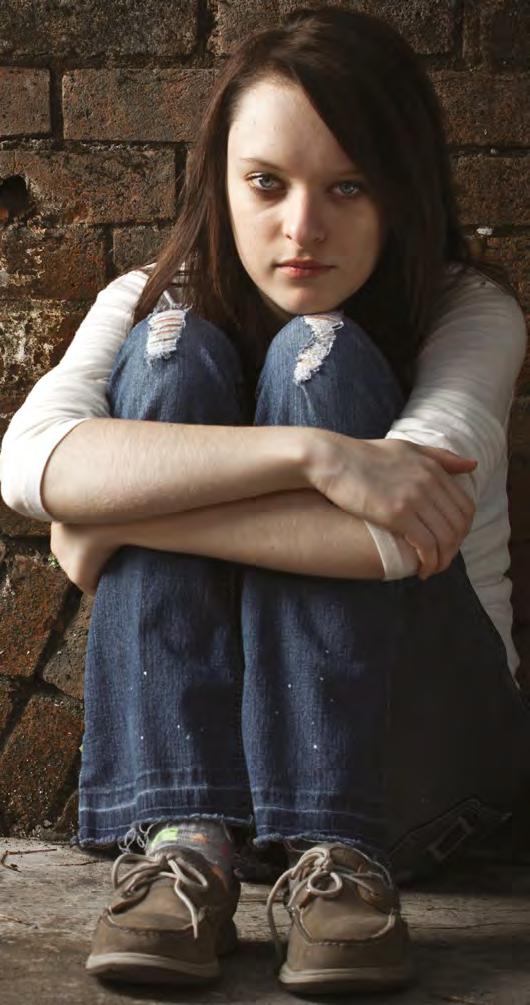
Advocating for homeless young people
Our recent report The Door is Still Closed examines the learning from advocacy and legal casework to articulate the realities of young people aged 16-17 who present to local authorities as homeless. The study found that – ten years after Coram Voice fist reported on these issues – local authorities are still failing their legal duty to provide support for 16- and 17-year-old homeless young people, leaving them unassessed and without essential services. All too many are denied care, remain unheard and limited access to access advocacy, making it difficult to challenge the decisions taken.
The findings identify seven barriers for 16 and 17 years olds in securing their rights and our Voices in Action young ambassadors worked to lay out a set of practical and achievable recommendations to address them, starting with access to correct information and a call to fund advocacy. The report has informed the work of Ofsted inspecting children’s services and discussions with Ministry of Housing, Communities and Local Government and the Department for Education on how we can keep local authorities accountable through better data and young people informed through better official information.
International legal reform
Coram International is distinctive for large-scale multi-country research studies and for its expertise in legal reform and system strengthening, including workforce development.
Development of Child Protection Law and Processes in Cambodia
This UNICEF funded project focused on developing a comprehensive Child Protection Law, establishing a robust Case Management System, and creating Standard Operating Procedures for child protection services in Cambodia, where previously there was no established system. The initiative involved extensive consultations with national and local government stakeholders, a thorough analysis of existing legal frameworks, and the development of training programmes to support the implementation of the new systems.
Together with a Government technical working group and UNICEF, Coram International drafted a new, comprehensive Child Protection Law that addresses key gaps in the existing legal
Deinstitutionalisation of children in Europe and Central Asia
Coram International recently conducted a major regional evaluation of childcare and deinstitutionalisation (DI) reforms across seven countries in Europe and Central Asia (Bulgaria, Georgia, Moldova, Montenegro, North Macedonia, Serbia, and Tajikistan) covering the period 2009–2022.
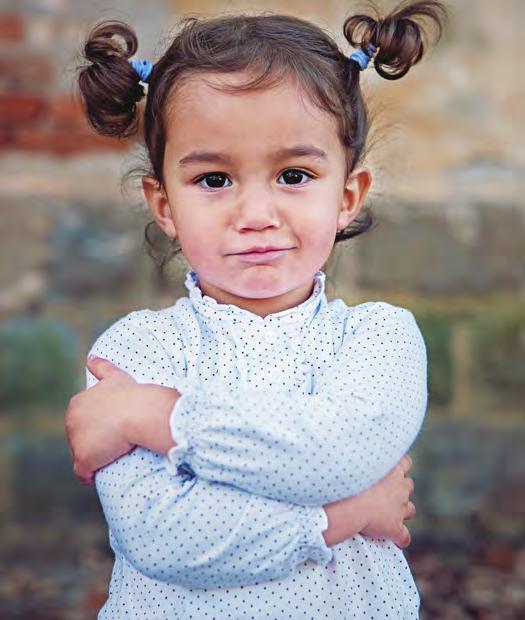
framework. Standard Operating Procedures were also developed, adopted by the Government and implemented. Alongside the Standard Operating Procedures, a training programme was designed and delivered to staff delivering child protection services in the districts and provinces. Feedback from pilots informed adjustments before nationwide implementation, significantly enhancing Cambodia’s child protection infrastructure.
The project is an exemplar of Coram’s expertise in legal reform and system strengthening. By developing a comprehensive Child Protection Law and implementing a Case Management System, Coram contributed to strengthening Cambodia’s child protection framework. The project’s impact extends beyond legal reforms, as it has improved the capacity of local stakeholders to deliver effective child protection services, ultimately enhancing the safety and well-being of vulnerable children in Cambodia.
Commissioned by UNICEF’s Europe and Central Asia Regional Office, the study assessed the impact, effectiveness, and sustainability of reforms designed to move away from institutional care and toward family- and community-based alternatives, with particular attention to children with disabilities and other highly marginalised groups.
Employing a mixed-methods, theory-based approach aligned with OECD/DAC evaluation criteria and UNEG standards, the evaluation drew on extensive desk research, administrative data, and in-country qualitative fieldwork. It examined progress, bottlenecks, and lessons learned across systems and contexts, while applying a strong equity, gender, and child rights lens.
Findings indicated significant progress in reducing reliance on large-scale institutions, an expansion of foster and kinship care, and increasing inclusive education opportunities for children with disabilities. At the same time, systemic challenges persist, including underdeveloped preventive and community-based services, workforce capacity constraints, weak cross-sectoral coordination, and insufficient data systems. Sustainability concerns remain, particularly where NGO-delivered services lack stable government financing.
The evaluation highlighted the importance of a holistic, cross-sectoral approach to child protection reform, greater investment in the social service workforce, and the need to strengthen accountability, planning, and data systems. Its recommendations have informed UNICEF, governments, and donors on strategies to consolidate gains, scale good practices, and advance the right of every child to grow up in a safe and nurturing family environment.
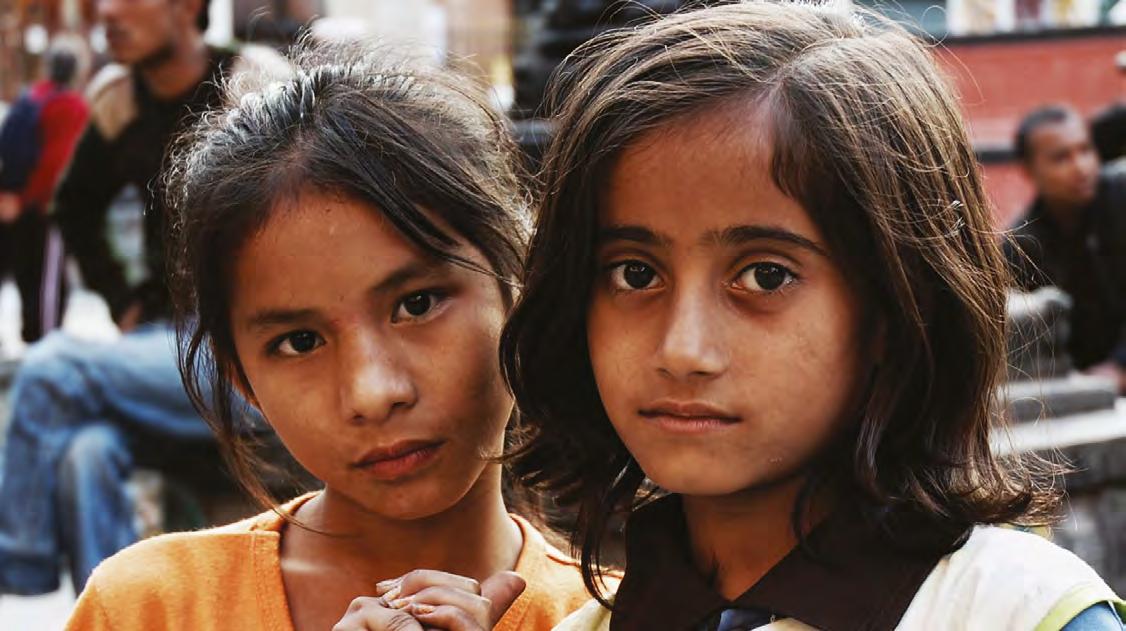
A Meta-Synthesis and Meta-Analysis of Evidence on Child Marriage in South Asia
Coram International has recently applied its expertise in research and child protection to advance understanding of child marriage dynamics and inform evidence-based interventions in South Asia. Under the UNICEF–UNFPA Global Programme to End Child Marriage, the team completed two complementary studies designed to examine the drivers of child marriage and assess the effectiveness of interventions aimed at addressing them. Together, these studies generated knowledge to inform more targeted and contextually relevant strategies, policies, and programmes, with particular focus on Bangladesh, India and Nepal.
The first study employed qualitative research methods to investigate the impact of the COVID-19 pandemic on child marriage drivers and moderators. This included examining changes in access to education, sexual and reproductive health services, and household economic security, as well as shifts in harmful social and gender norms. The research also explored whether new drivers
Published research
Our most recently published research includes: A Meta-Synthesis and Meta-Analysis of Evidence on Child Marriage in South Asia; Strengthening Foster Care in Türkiye; My Education, My Future (Burundi); A Formative Evaluation of the Positive Parenting Programme in Cambodia; An Assessment of the Youth Engagement Landscape in the Pacific Islands; A Mapping and Capacity Gap Analysis of the Social Service Workforce in Bangladesh; and a Multi-country Programme Evaluation Synthesis Report of the Childcare and Deinstitutionalisation Reforms from 2009 to 2022
emerged as a result of the pandemic and its containment measures, the effects of COVID-19 on already married girls (particularly regarding agency, decision-making and access to support networks), and how adolescents’ attitudes toward marriage evolved in the pandemic context.
Building on this, the second study comprised a meta-analysis and meta-synthesis of evidence on interventions to prevent child marriage in South Asia. The findings highlight strategies with demonstrated effectiveness, including: shifting emphasis from school attendance alone to enhancing girls’ academic achievement, skills development and economic preparedness; implementing income-generating and financial literacy initiatives to strengthen girls’ human capital; addressing harmful social norms through multi-layered, community-driven approaches; and empowering adolescents through programmes that integrate sexual and reproductive health with decision-making skills.
The research further underscores the importance of robust legal frameworks with strong enforcement, tailoring interventions to local contexts and investing in ongoing data generation to ensure sustainable impact.


Policy and practice
Coram’s policy expertise spans all areas of children’s lives. Our policy specialists amplify and disseminate research findings, using generative co-production of policy recommendations involving young people and those embedded in practice.
Our team
Linda Briheim-Crookall is the Head of Policy and Practice development for Coram Voice, directs the Bright Spots surveys and works with Louise Mumcular in the arena of youth homelessness.
James Bury is the Head of Research, policy and practice for CoramBAAF whose specialist consultants in adoption, fostering, kinship and children’s services development work with local authorities across the UK.
Jan Forshaw MBE and Harriet Gill bring experience of delivery across 40 years to the debate and development of policy around personal, social and health education, and digital futures.
Lydia Hodges is Head of Coram Family and Childcare, leading on the area of early years and childcare including childminding informed by the membership of Coram PACEY.
Anita Hurrell and Marianne Lagrue lead our work on children’s rights embracing family, education, community care and immigration law.
Caitlin Kennedy and Brigid Robinson MBE lead on the history of care including our voices through time, archive development and public programmes.
Julia Mayer supports the Voices in Action young ambassadors whose lived experience of the issues of homelessness and school exclusion, leaving care, and the immigration system drives policy recommendations and practice improvement.

Institute resources for research, policy and practice
The Coram Institute is characterised by real time data and youth insight drawn from:
• National data from public helplines and commissioned data collection
• Parent Champions programmes
• Membership bodies in early years and in children’s services
• Established national surveys
• Journal of Adoption and Fostering
• Practice banks and published resources across children’s social care
The Coram Institute’s dedicated home on the Coram Campus, includes seminar, workshop and incubation spaces, including our Insight Lab and provides facilities for collaboration, co-location, co-production and dissemination of research.
The Library of Care holds resources and records on the development of children’s social care since 1948 together with a growing range of specialist collections and practice banks.
The Coram Archive is the longest continuing record of care for 27,000 children in The Foundling Hospital with an extensive digital collection found at coramstory.org.uk .
The Coram Society provides a public programme of talks and debates, lectures and publication both online and in person.
For more information visit us at coram.org.uk

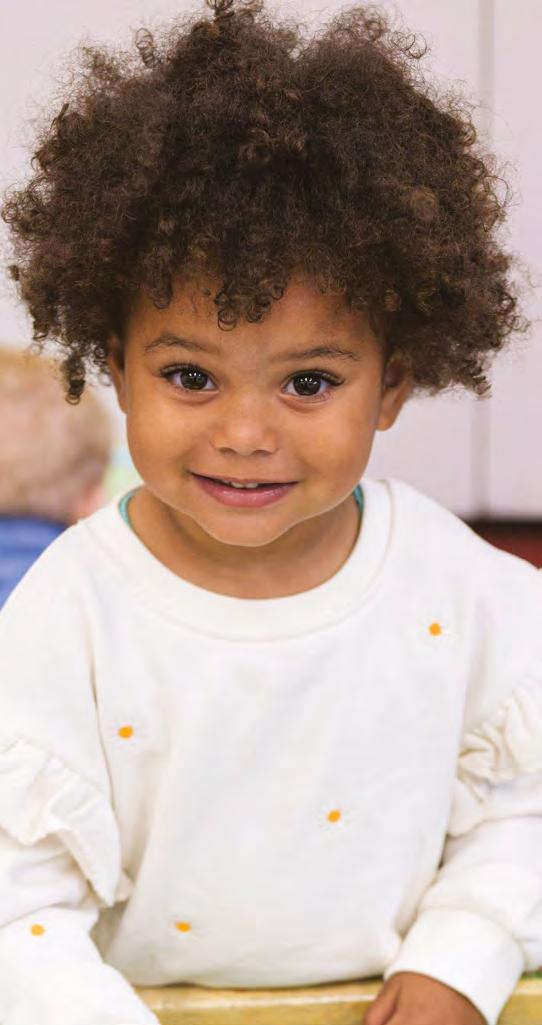
Building public engagement
The Coram Society aims to extend the engagement of the public with research and issues facing children and young people today through a focus on learning from the past to inform the future and debates and discussions on contemporary issues. Speakers we have hosted include the Rt Revd Sarah Mullally, Archbishop of Canterbury in discussion with Lady Hale in exploring the issues for women in leadership, and the first Children’s Commissioner for England Professor Sir Al Aynsley-Green on the theme In the Footsteps of Thomas Coram.
In 2026, a programme of research, policy and public events will mark the centenary of the 1926 Adoption Act to examine the experiences of illegitimate children adopted as a result of social stigma before the development of modern adoption to provide permanent loving homes for children leaving the care system.
The programme features the launch of adoptionstory.org.uk expressing voices and stories from across the spectrum of personal experience, a policy forum on the legislative framework and the modernisation of practice to secure connections and relationships that matter for children, and the publication of a longitudinal study of attachment in adoption following Coram adoptees over more than two decades.
Tracking the cost and availability of childcare in Great Britain
Coram Family and Childcare’s annual Childcare Survey has been the definitive source of data on the cost and availability of childcare in Great Britain for 24 years, informing policy makers with the evidence of sufficiency and the impact for access to childcare for parents and children. Information is collected from every local authority in England, Scotland and Wales, across different setting types, for different age groups, and for part-time, full-time and before- and after- school places. This allows analysis of the price parents pay for childcare, to enable them to go to work and to give their child an early education. The survey compares national and regional cost variations, and provides decades worth of trend data. Alongside costs, the survey gathers information on childcare sufficiency across age groups, entitlements and specific categories, such as children with special educational needs, for whom the survey has found face a consistent lack of provision.
Published in Spring every year, the survey has tracked the impact of every iteration of government-funded childcare entitlements, as well as monitoring the changing landscape for childcare providers, the impact of COVID- 19 and parents’ experiences of using childcare. Findings have been used to set the national Living Wage, inform the Government’s Best Start in Life Strategy and as a trusted benchmark by researchers and policy makers worldwide. On the day the final expansion of government-funded childcare entitlements for working parents was rolled out, data collected from the survey was used to highlight the gap for disadvantaged children and the price their parents would need to pay each week, should they want to give their child the same early education opportunity as children of working parents.
The Holiday Childcare Survey has tracked the cost and availability of childcare for school-aged children outside of school term time for 18 years, including the impact of the Holiday Activities and Food programme for disadvantaged children. Published just before schools in England close for the summer break each year, the survey particularly highlights the ‘summer scramble’ to cover the full six weeks of holiday at an affordable cost.
Policy platforms
The research evidence and analytical insight which Coram gains from its work informs our contribution to parliamentary process, national learning and departmental policy-making.
Young ambassadors of A National Voice undertook the consultation for the Independent Review of Children’s Social Care, whilst oral evidence was contributed both during Committee stage of the Children’s Wellbeing and Schools Bill and the Education Select Committee’s inquiry into children’s social care.
As a Core Participant to the COVID -19 Inquiry Module 8 on children and young people, oral evidence focussed on the trends already identified before the pandemic and the predictable impacts of school closures which has left a lasting legacy for the digital first generation and an imperative for change to change the odds for the next generation.
Our regular Policy Briefing can be found at coram.org.uk/policy
Insight into innovation
Coram-i is the Institute’s innovation and improvement arm. It translates insight into action by working directly with local authorities and sector partners to co-design, test, and implement practical solutions to the most pressing challenges in children’s services.
Its work is grounded in data-driven decision-making, ethical AI, and collaborative innovation, with a focus on building transformational capacity across the system, along with the sharing of impact evaluation and social return on investment to inform both policy and practice.
Coram-i’s innovation ecosystem includes:
• Coram-i Insights Collection is an annual publication of articles showcasing innovation, learning and impact across children’s services
• Coram-i Innovation Projects are co-designed initiatives that serve as test-beds for new ideas, tools and approaches, grounded in real-world practice
• Coram-i Innovation Forum provides a space for collaboration and exploration of key challenges and new solutions
• Coram-i Leadership Programme is a CPD opportunity focused on design-thinking and innovation leadership
Together, these initiatives support Coram-i’s mission to strengthen sufficiency, capability, and equity in children’s services through applied research, service transformation, and shared impact evaluation.
Future forums will address placement sufficiency and SEND reform, whilst innovation projects are tackling children’s voice in data systems, social care recruitment challenges and replicating learning in multi-disciplinary approaches to tackling school exclusion.
Current product development is focused on solutions for children and young people in care to access their life stories, data standards for case management systems, data-informed early interventions, practice development in befriending and mentoring, and in tackling school exclusion.
Coram-i is a partner with Social Finance, Local Government Association and Data to Insight in the design of a Centre of Excellence – a support offer for data and digital work in children’s social care – and the provider of the data collection in adoption and special guardianship for the Department for Education.
Innovation in practice
CoramBAAF is the UK’s community of practice for children’s social care agencies and practitioners across adoption, fostering and kinship care. Its forms provide the definitive and consistent base for shared practice, complemented by practice guides, specialist advice line, conferences and CPD training reaching 50,000 professionals every year.
The Coram Institute for Children will advance our unwavering commitment to making positive change happen, building on nearly three centuries of support for our most vulnerable children.
The most recent Innovation Forum explored the role that AI might play in supporting professionals with analysis of the complex, intersecting needs of children, examining practical applications as well as the developmental risks and opportunities with inter-generational commentary.
The Adoption and Fostering Journal publishes articles on recent advances whilst the Research Advisory group, chaired by Professor Lisa Holmes, brings together multi-disciplinary researchers across social care, health and law to inform pathways from research into practice and to inform and influence research.

Professor Sir Anthony Finkelstein CBE FRS FREng
